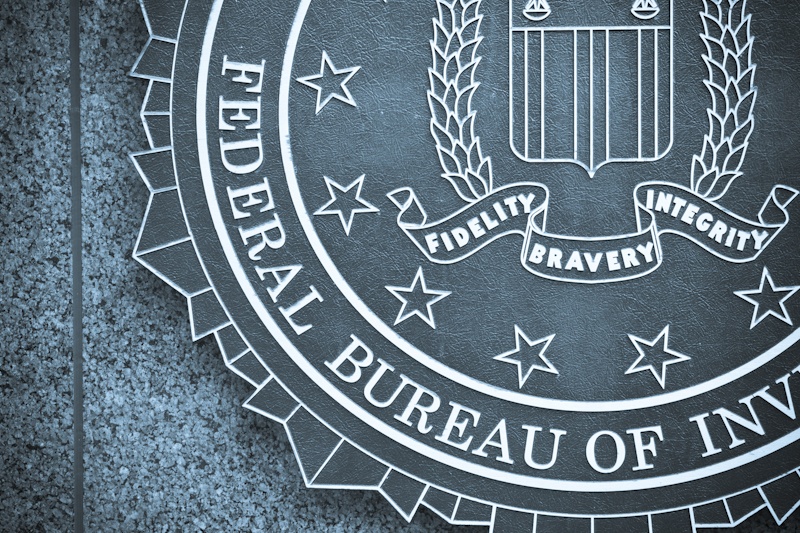Senate Unveils “Compromise” FISA Reauthorization Bill

Published by The Lawfare Institute
in Cooperation With

Sens. Dick Durbin (D-Ill.) and Mike Lee (R-Utah) on March 14 unveiled a new, bipartisan bill to reauthorize Section 702 of the Foreign Intelligence Surveillance Act (FISA) as Congress struggles to reach consensus on reforming the authority before it is set to expire next month. In the Security and Freedom Enhancement Act of 2024 (SAFE Act), Sens. Durbin and Lee have crafted a modified warrant requirement for U.S. person queries conducted under Section 702 that seeks compromise between national security hawks who hold that a warrant requirement will render Section 702 operationally “unworkable” and privacy advocates who maintain that court approvals will help address abuse and “backdoor searches” of U.S. person communications. It’s a compromise that is unlikely to sit well with the Biden Administration or the House and Senate Intelligence Committees.
With the introduction of the SAFE Act, Durbin and Lee have reinserted the Senate into the public debate on Section 702 reauthorization. The Senate was the first chamber to move ahead on reauthorization last year. In November, Senate Intelligence Committee Chairman Mark Warner (D-Va.) and Vice Chairman Marco Rubio (R-Fla.) and Sens. Lee and Ron Wyden (D-Ore.) introduced competing reauthorization bills that revealed the wide congressional gulf on how to reform Section 702. But the Senate then assumed a backseat role, as the conversation shifted to the House of Representatives. Since December, the House has found little success reconciling internecine disagreements among House Republicans that have forced House Speaker Mike Johnson to postpone floor action on multiple reauthorization proposals, including a compromise bill that faced a rapid rise and fall just over a month ago.
The centerpiece of the SAFE Act is its provision of a middle ground on the warrant requirement. Under current law, the U.S. government may run queries of Section 702 information using U.S. person search terms and access the results without prior approval from a court. Up to this point, the warrant requirement debate has occurred along the lines of whether or not to require a court order before running any U.S. person query. The authority to run a query without prior court approval would remain unchanged under the SAFE Act. But the bill would require the government to obtain a probable cause criminal warrant or a traditional FISA court order before accessing the results of that query, that is, any communications content. The bill incorporates some exceptions to this requirement, such as for emergency situations, when the queried U.S. person provides consent, or for queries designed to identify targets of cyberattacks.
The SAFE Act’s modified warrant requirement resembles a compromise approach that a majority of the Privacy and Civil Liberties Oversight Board (PCLOB) put forward last fall. The three-member PCLOB majority endorsed a similar framework that would allow the government to run a query in the first instance but would condition access to the results of the query on Foreign Intelligence Surveillance Court (FISC) approval. The PCLOB arrived at this bifurcated approach in an effort to balance civil liberties and practical concerns. Less than 2 percent of the FBI’s U.S. person queries returned hits in 2022, so requiring judicial approval only at the results stage was the PCLOB’s way of preventing courts and government officials from devoting lots of process to fruitless searches. As my colleague Stephanie Pell assessed,
[T]he PCLOB’s recommendation is a reasonable compromise given the various competing equities at issue. It provides a greater degree of privacy protection because an independent judge is reviewing whether the government has established the standard required by the law to access information retrieved from queries involving U.S. persons or persons in the United States. It also addresses concerns that the FBI will be hamstrung if it must get a court order every time it wants to run a U.S. person query. It frees the government and the courts from going through an order process in advance of doing every query, only to find that there are no results.
Two PCLOB members declined to endorse the approach suggested by the PCLOB majority. They noted judicial review at the results stage would “most negatively impact the most important and urgent queries—the ones that show a connection between foreign targets and U.S. persons, the ones that the FBI must review as quickly as possible.”
The SAFE Act’s similarities with the PCLOB approach extend only so far. Notably, the bill predicates judicial approval on a higher legal standard and a different focus. The PCLOB approach would require that the query be reasonably likely to retrieve foreign intelligence information or, in the case of the FBI, evidence of a crime. Under the SAFE Act, which would require that the government obtain either a criminal search warrant or a traditional FISA order, it appears the government would have to demonstrate probable cause to believe that the information to be accessed was evidence of a crime or that there was probable cause to believe that the U.S. person who was queried is a foreign power or the agent of a foreign power, or something to this effect.
Tethering judicial approvals to a probable cause criminal warrant or traditional FISA order will almost certainly face resistance among warrant skeptics. One of the government’s core arguments against this requirement is that Section 702 queries often occur at the beginning of investigations when the information picture is incomplete. At that stage, it may be too early when the query is run to separately identify whether a crime has been committed, which is a core showing for criminal warrants.
Several other SAFE Act reforms resemble those advanced in the House Judiciary Committee’s Protect Liberty and End Warrantless Surveillance Act and Sens. Lee and Wyden’s Government Surveillance Reform Act. For example, the SAFE Act would revoke the government’s ability to resume “abouts collection,” a sweeping surveillance practice that the government voluntarily discontinued in 2017. The bill also includes the Lee-Leahy Amendment, which strengthens the role of the FISC amici and passed the Senate in 2020.
The SAFE Act also expands the prohibition against reverse targeting. Under current law, the government may not intentionally target a person reasonably believed to be located outside the United States if the purpose is to target a particular, known person reasonably believed to be in the United States. As written, this prohibition guards against using Section 702 to target a non-U.S. person overseas when the real purpose is to collect on a U.S. person. The SAFE Act, Protect Liberty and End Warrantless Surveillance Act, and Government Surveillance Reform Act would strengthen this prohibition by prohibiting Section 702 collection if a “significant purpose” is the targeting of “1 or more” U.S. persons or persons believed to be located in the United States. Our colleagues Alex Joel and Robert Litt have written on the broad implications of this change—potentially a “back door repeal of 702”—which has been debated and dropped from previous FISA reauthorizations:
One would naturally expect that in conducting foreign intelligence targeting non-U.S. persons abroad, a “significant purpose” would be to acquire information of people in the U.S. who might be in communication with those targets. And it is important to note that the language of the amendment is not limited to communications with U.S. persons; even if a significant purpose of the surveillance is to obtain communications between foreign terrorists in which they identify their U.S. accomplices, the surveillance is prohibited. Thus, 702 would be limited to instances where there is no possibility that a U.S. person would be contacted or discussed—which is hardly appropriate for a tool intended to protect the United States.
The SAFE Act would also close the “data broker loophole” that allows the government to purchase private-sector data that it would otherwise need a court order, subpoena, or warrant to compel. The bill would largely prohibit law enforcement agencies from purchasing this information or from obtaining the information from agencies that can make such purchases. Intelligence agencies would still be permitted to purchase this type of information after receiving a FISA or Title 18 court order. The bill includes several exceptions to these prohibitions or limitations, including an exception that would allow agencies to acquire sensitive data without a court order if the agencies could not identify or exclude such data prior to collection or operational use of the data set, as long as the agencies follow strict minimization procedures.
Separately, the bill would update various sections of the Electronic Communications Privacy Act (ECPA) to implement consistent privacy protections for data held by data brokers and interactive computing services, and to extend the ECPA’s protections to intermediary service providers. These provisions, similar to those offered in the Fourth Amendment Is Not for Sale Act, are intended to prevent government agencies from obtaining sensitive U.S. person information from these categories of organizations without any judicial scrutiny or oversight.
Other sections of the SAFE Act embody broadly accepted FISA reform ideas that have cut across ideological lines. These changes include stiffening criminal penalties for FISA violations, tightening accuracy and disclosure requirements for FISA court order applications, and codifying various FBI internal oversight mechanisms of Section 702 queries. The SAFE Act would also require a “foreign intelligence purpose” for conducting U.S. person queries under Section 702, which would likely end the FBI’s ability to conduct queries solely to retrieve evidence of a crime and is consistent with other bills.
The inclusion of Sens. Lee and Wyden as sponsors of the SAFE Act may signal its acceptance among civil libertarians. It is less clear how the Biden administration or the House and Senate Intelligence Committees, which have opposed the inclusion of a warrant requirement in Section 702 reauthorization, will react. The modified warrant requirement and the expansion of the reverse targeting prohibition will likely draw their opposition. The SAFE Act’s supporters call it a “compromise bill,” but the final compromise on Section 702 reauthorization may still be some ways off.



-final.png?sfvrsn=b70826ae_3)

